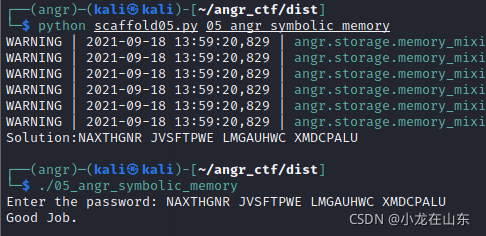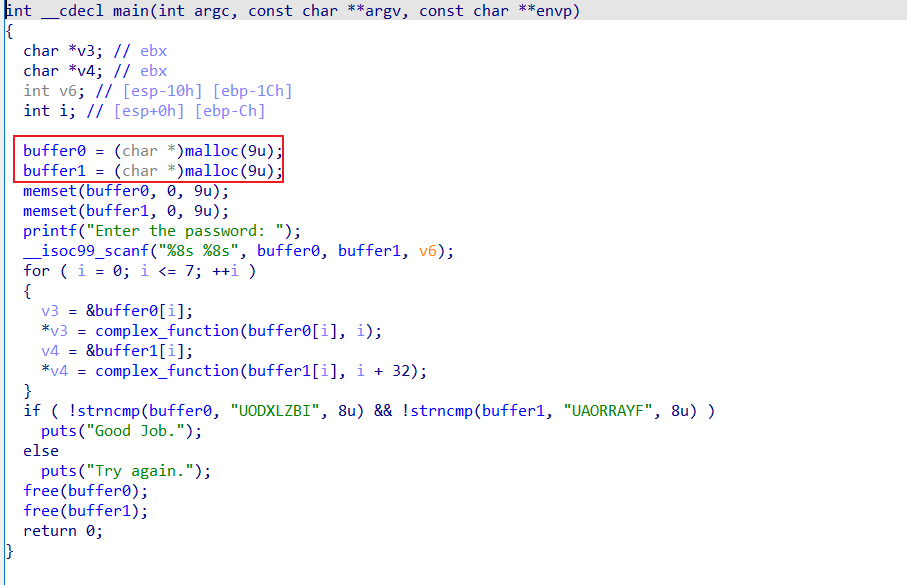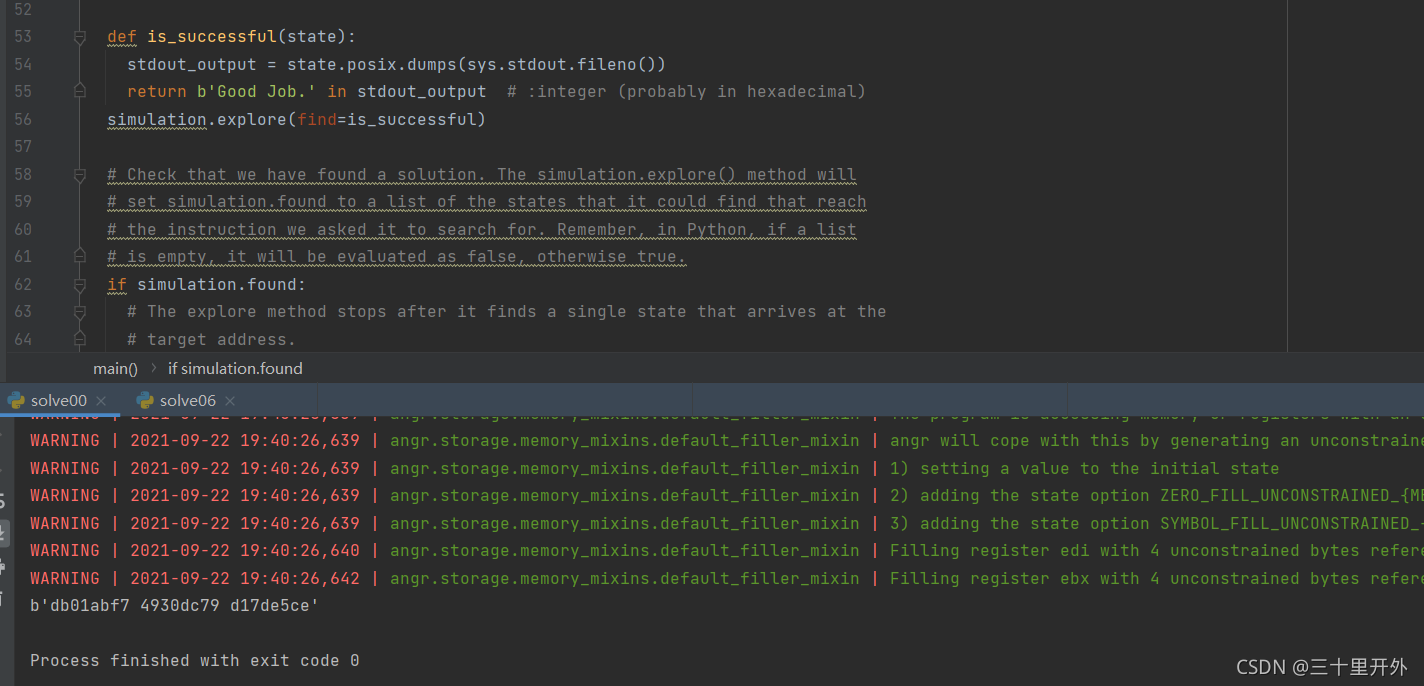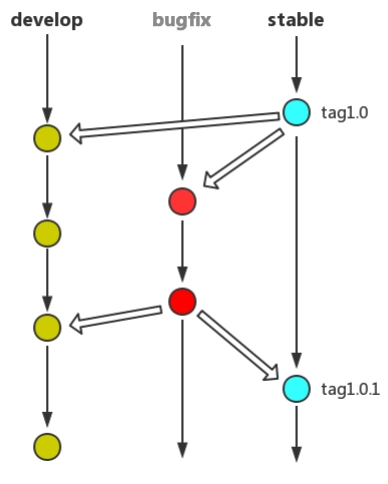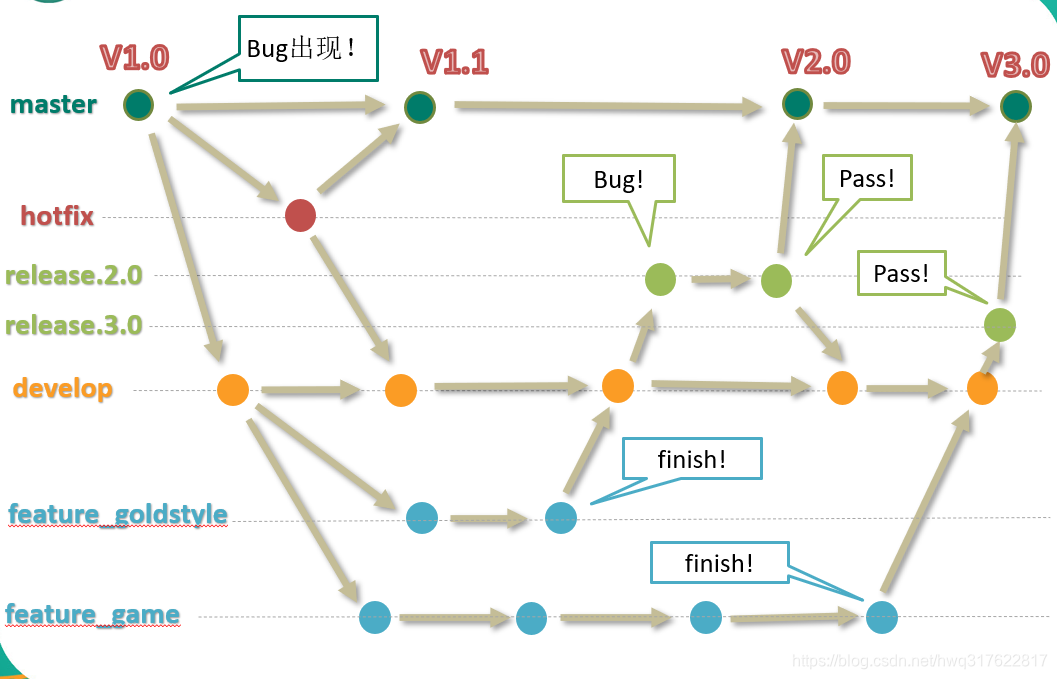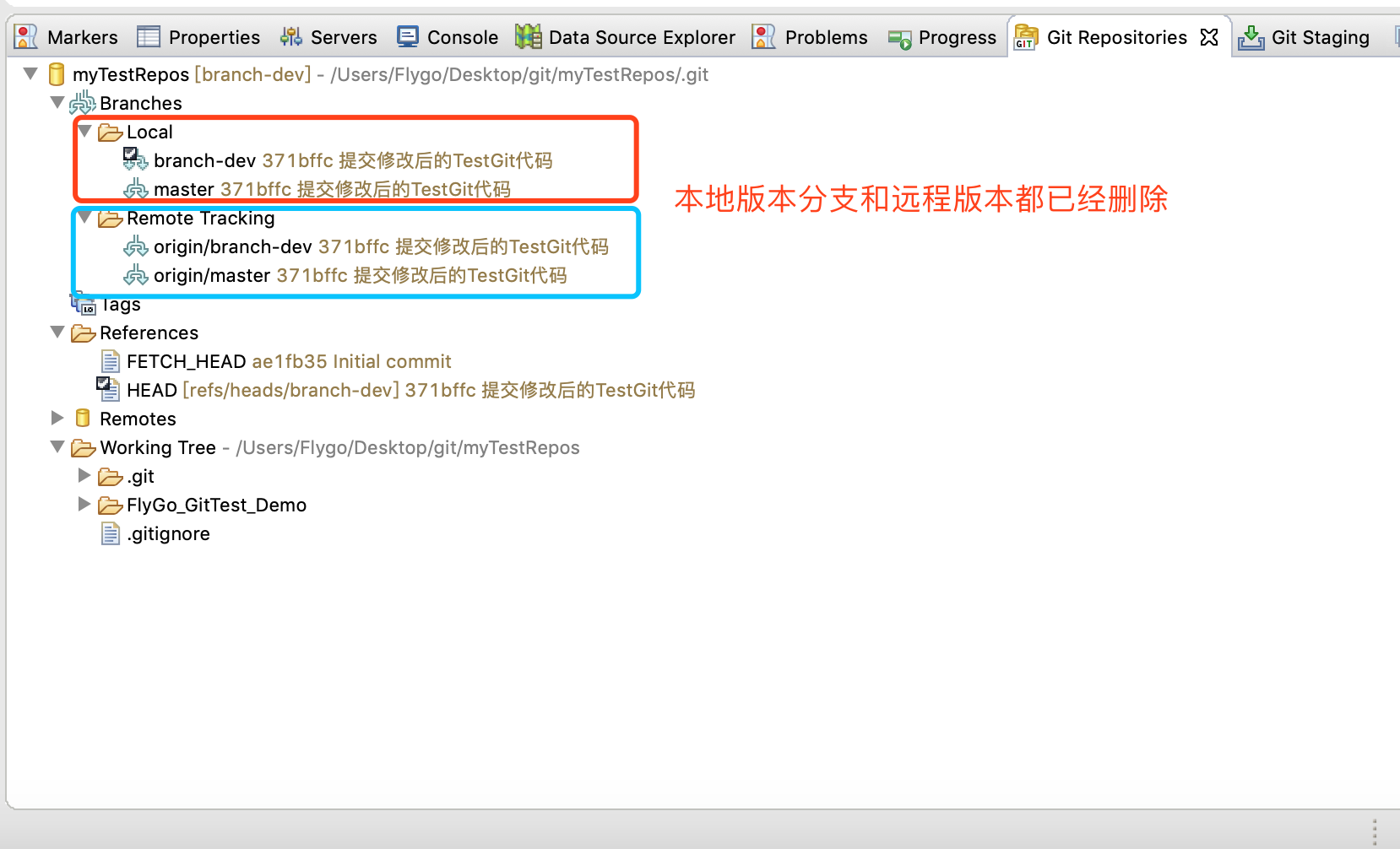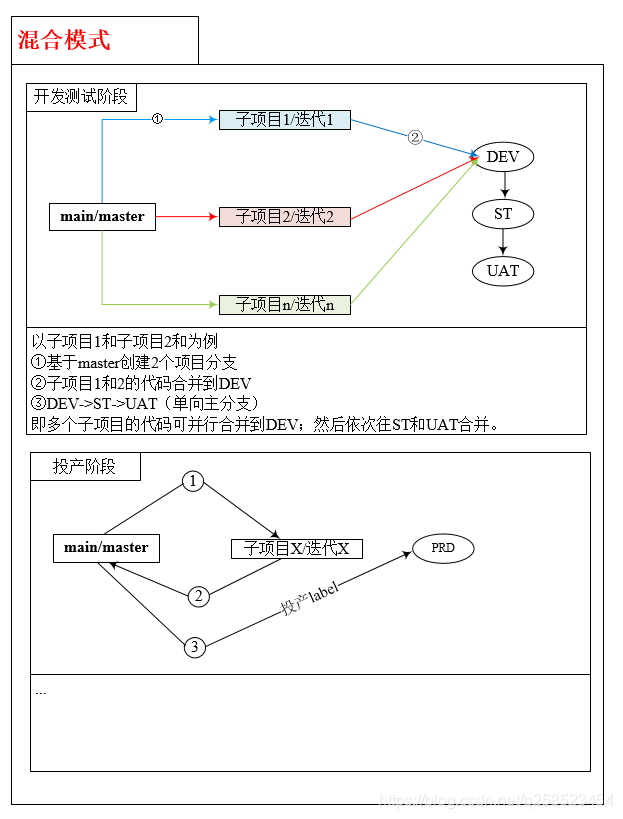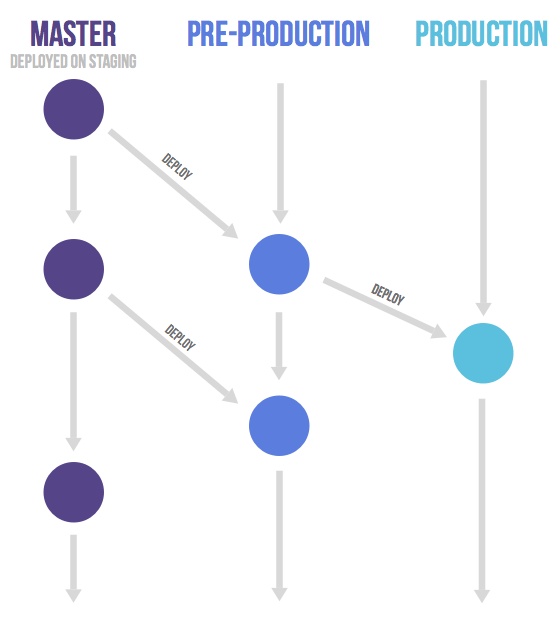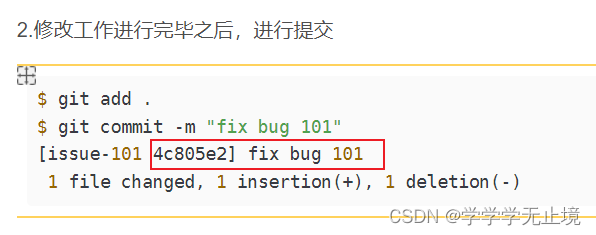说明
通过查看下面的源码或IDA汇编,可知此例需要输入4个输入字符串,给每个输入字符串赋值给了user_input数组这块已经开辟的内存空间,我们可以监测user_input在内存中的值来获取最终的答案。
随机生成的源码
#include <stdio.h>
#include <stdlib.h>
#include <string.h>
#define USERDEF "YZJGNZSQCRTECQLVJKDHBYEFALOWJXHE"char padding0[ 59499168 ];
char user_input[32+1];
char padding1[ 21264468 ];char msg[] = "placeholder\n";void print_msg() {printf("%s", msg);
}int complex_function(int value, int i) {
#define LAMBDA 9if (!('A' <= value && value <= 'Z')) {printf("Try again.\n");exit(1);}return ((value - 'A' + (LAMBDA * i)) % ('Z' - 'A' + 1)) + 'A';
}int main(int argc, char* argv[]) {memset(user_input, 0, sizeof(user_input));//print_msg();printf("Enter the password: ");scanf("%8s %8s %8s %8s", user_input, &user_input[8], &user_input[16], &user_input[24]);for (int i=0; i<32; ++i) {user_input[i] = (char) complex_function(user_input[i], i);}if (strncmp(user_input, USERDEF, 32)) {printf("Try again.\n");} else {printf("Good Job.\n");}
}IDA查看地址

scanf的8s表示字符串长度为8,每个字符2个字节,一共8*2*4=64个字节。
pwndbg查看内存数据

这里测试用的输入字符串是:aaaaaaaa bbbbbbbb cccccccc dddddddd,一共32个字符,每个字符2字节,一共64字节。
每个字符串包含8个字符,每个字符8位,所以设置BVS时,第2个参数为8*8=64。
Angr exp
import angr
import claripy
import sysdef main(argv):path_to_binary = argv[1]project = angr.Project(path_to_binary)start_address = 0x08048601initial_state = project.factory.blank_state(addr=start_address)# The binary is calling scanf("%8s %8s %8s %8s").# (!)password0 = claripy.BVS('password0', 64)password1 = claripy.BVS('password1', 64)password2 = claripy.BVS('password2', 64)password3 = claripy.BVS('password3', 64)# Determine the address of the global variable to which scanf writes the user# input. The function 'initial_state.memory.store(address, value)' will write# 'value' (a bitvector) to 'address' (a memory location, as an integer.) The# 'address' parameter can also be a bitvector (and can be symbolic!).# (!)password0_address = 0x0A1BA1C0initial_state.memory.store(password0_address, password0)password1_address = 0x0A1BA1C8initial_state.memory.store(password1_address, password1)password2_address = 0x0A1BA1D0initial_state.memory.store(password2_address, password2)password3_address = 0x0A1BA1D8initial_state.memory.store(password3_address, password3)simulation = project.factory.simgr(initial_state)def is_successful(state):stdout_output = state.posix.dumps(sys.stdout.fileno())return b'Good Job' in stdout_outputdef should_abort(state):stdout_output = state.posix.dumps(sys.stdout.fileno())return b'Try again' in stdout_outputsimulation.explore(find=is_successful, avoid=should_abort)if simulation.found:solution_state = simulation.found[0]# Solve for the symbolic values. We are trying to solve for a string.# Therefore, we will use eval, with named parameter cast_to=str# which returns a string instead of an integer.# (!)solution0 = solution_state.solver.eval(password0,cast_to=bytes).decode('utf-8')solution1 = solution_state.solver.eval(password1,cast_to=bytes).decode('utf-8')solution2 = solution_state.solver.eval(password2, cast_to=bytes).decode('utf-8')solution3 = solution_state.solver.eval(password3, cast_to=bytes).decode('utf-8')solution = "Solution:{} {} {} {}".format(solution0, solution1, solution2, solution3)print(solution)else:raise Exception('Could not find the solution')if __name__ == '__main__':main(sys.argv)结果
